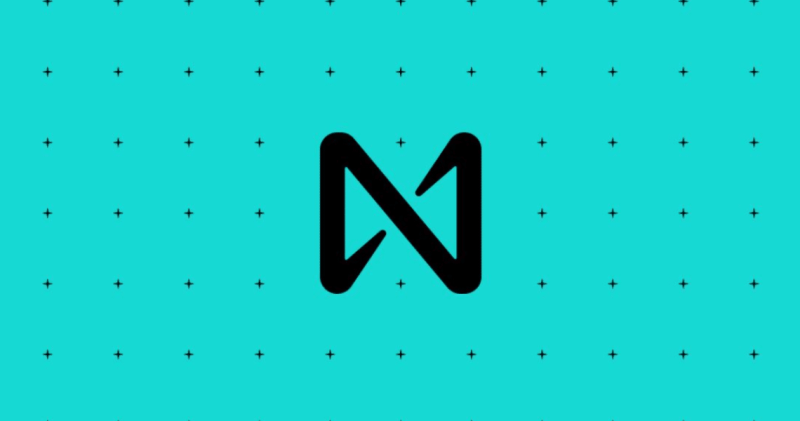
Listen this article

download
Here are the latest news from the first two days of Nearcon in Lisbon, a crypto event dedicated to the Near community, where every year new technologies are announced and new challenges and partnership with Polygon Labs for the crypto ecosystem are presented.
The most interesting news concerns a collaboration between Polygon Labs and the Near Foundation, who have worked together to develop a zero-knowledge demonstrator for all new L2 chains rolled up on Ethereum.
In addition, it is noteworthy that the NEAR team itself has teamed up with several cryptographic partners such as StarkNet, Caldera, Fluent, Vistara, Dymension and Movement Labs to innovate the field of on-chain data availability on Ethereum by introducing the new Near DA (Data Availability) solution.
Read all the details below.
Nearcon: Polygon and Near develop zero-knowledge demonstrator for new Ethereum rollups
Yesterday, the doors opened to Nearcon in Lisbon, a crypto event focused on the development of the decentralised Near ecosystem, where a very interesting partnership with Polygon Labs was announced.
The two crypto projects have joined forces to develop a zero-knowledge solution for chains using the Web Assembly Standard (WASM).
Polygon brought its expertise in scalability concepts on Ethereum with zk rollups, while Near offered its blockchain infrastructure and WASM runtime expertise.
Together, the two teams created the zkWASM solution, which is positioned at the forefront of the web3 market and serves as a zero-knowledge demonstrator for new rollup networks on Ethereum.
In practice, zkWASM is one of three demonstrators available to developers who choose to build with the Polygon Chain Development Kit (CDK), an open source code base for introducing ZK-based L2 chains for Ethereum.
This implementation positions NEAR in a framework of interoperability with the crypto market’s first decentralised ecosystem, allowing WASM chains to tap into Ethereum’s liquidity.
In the future, through a layer of interoperability currently under development, chains will also be able to access shared liquidity in a unified ecosystem of distributed CDK chains, including Layer-1 Alternative, Layer-2 EVM and WASM chains.
Thanks to this ZK solution, networks that are part of the NEAR ecosystem will be able to settle transactions efficiently and economically, with the highest level of security, and unlock the potential of web3 in its multi-chain version.
This is an incredible step forward in the construction of an increasingly functional blockchain landscape, capable of unifying the use of all the resources currently scattered across the various decentralised networks.
It emerged from the Nearcon conference that the rumoured zkWASM prover will be released next year and will lead the market for other WASM provers.
A zkWASM prover is essentially an upgrade for NEAR validators: they will now be able to simplify the work of validating a shard thanks to zk technology. This means better scalability and more decentralisation for the NEAR protocol.
Sandeep Naiwal, co-founder of Polygon, commented on the partnership between the two teams:
“We are proud to partner with NEAR on this exciting research initiative to further advance the development and adoption of ZK technology.
The zkWASM prover maximises developer customisation, meaning that projects will be able to choose from a range of provers when building with CDK, whether they are starting or migrating an EVM chain, or building a WASM chain for closer alignment with Ethereum and access to liquidity”
On the other hand, Illia Polosukhin, co-founder of NEAR Protocol, is excited about the progress her chain is making to get closer and closer to the Ethereum ecosystem. These are her words
“NEAR is becoming more integrated with Ethereum by innovating in new areas of research, and the combined expertise of NEAR and Polygon will expand the ZK landscape and defragment liquidity across chains. The creation and deployment of the zkWASM prover will also enhance the scalability and decentralisation of NEAR L1”.
Near Foundation launches Near DA and explores new solutions for cheap and fast availability of data on Ethereum rollups
Other Near news from Nearcon in Lisbon includes the launch of a new solution for storing data on Ethereum rollups, in collaboration with StarkNet, Caldera, Fluent, Vistara, Dymension and Movement Labs.
This is Near DA, a breakthrough innovation that provides robust and cost-effective data availability for developers creating L2 zk chains on Ethereum.
This implementation reflects the last three years of work by the Near Foundation, which has worked hard to make its blockchain a staple of the decentralised web3 network landscape.
Indeed, Near provides a cheap and scalable environment for users and developers to work in: publishing rollup data on NEAR is 8,000 times cheaper than publishing on L1 Ethereum.
Near DA therefore offers several advantages to crypto platform developers, who can continue to build on ETH without incurring high costs in terms of publishing data, as gas fees are completely negligible on the Near chain.
Consider that publishing 100kB of call data on Ethereum with optimistic rollups would initially cost $26.22, while publishing the same data on NEAR would only cost $0.0033.
In this way, the NEAR protocol expands its offering to provide Web3 platform founders with an increasingly functional and optimised modular blockchain development framework.
NEAR DA extends the functionality of NEAR’s Open Web Stack, a common access point where developers and users can easily create, search and discover decentralised products and applications.
Illia Polosukhin, co-founder of NEAR Protocol, said:
“Providing a data availability layer for Ethereum rollups highlights the versatility of NEAR’s technology, while helping founders across Web3 build great products that bring us closer to mainstream adoption of the Open Web.
NEAR’s L1 has been running with 100% uptime for over three years, providing true reliability for projects looking for secure DA at an affordable price. NEAR provides great solutions for developers regardless of the stack they are building on, and now includes Ethereum’s modular blockchain landscape.”

